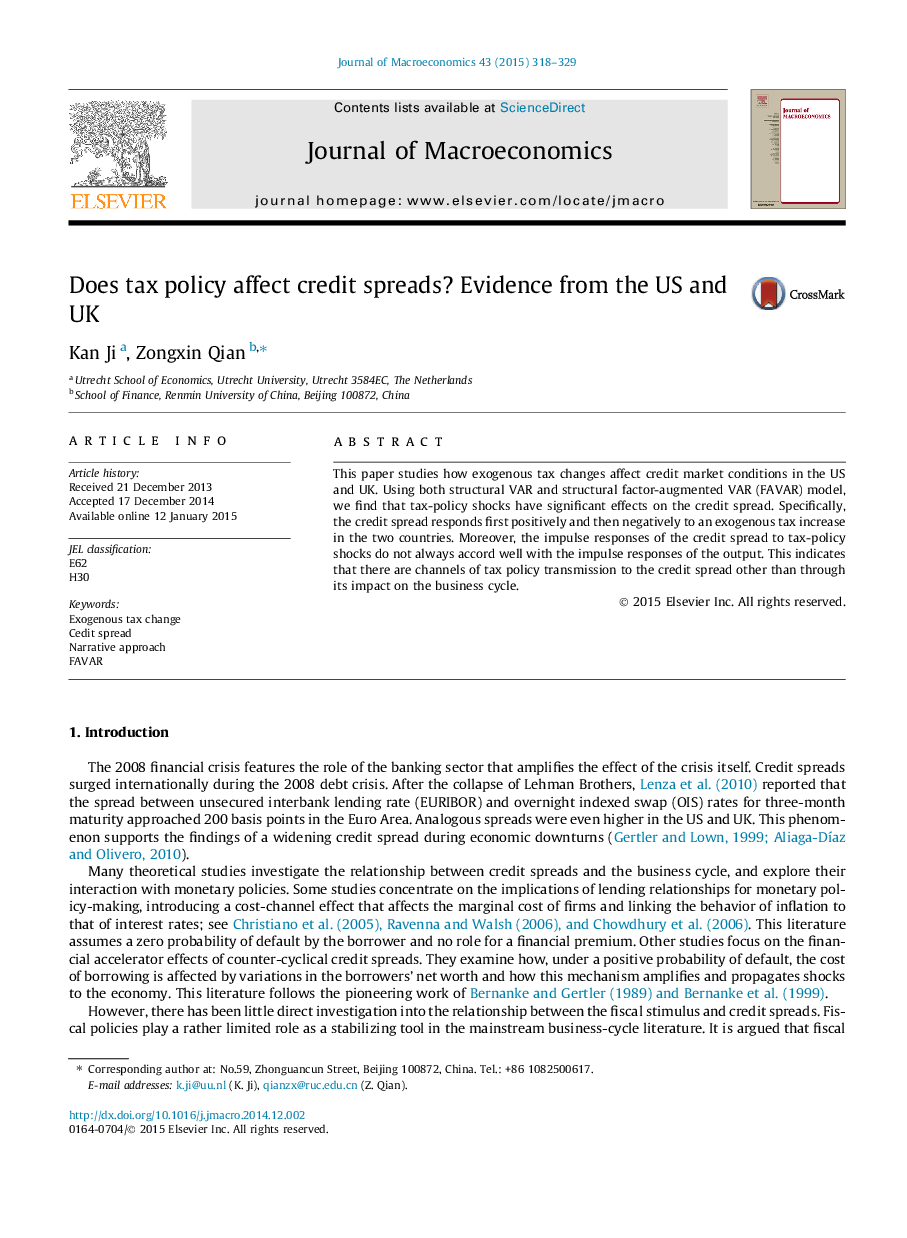| Article ID | Journal | Published Year | Pages | File Type |
|---|---|---|---|---|
| 965318 | Journal of Macroeconomics | 2015 | 12 Pages |
Abstract
This paper studies how exogenous tax changes affect credit market conditions in the US and UK. Using both structural VAR and structural factor-augmented VAR (FAVAR) model, we find that tax-policy shocks have significant effects on the credit spread. Specifically, the credit spread responds first positively and then negatively to an exogenous tax increase in the two countries. Moreover, the impulse responses of the credit spread to tax-policy shocks do not always accord well with the impulse responses of the output. This indicates that there are channels of tax policy transmission to the credit spread other than through its impact on the business cycle.
Keywords
Related Topics
Social Sciences and Humanities
Economics, Econometrics and Finance
Economics and Econometrics
Authors
Kan Ji, Zongxin Qian,
